Best Souvenirs from Japan: Must-Buy Snacks and Crafts
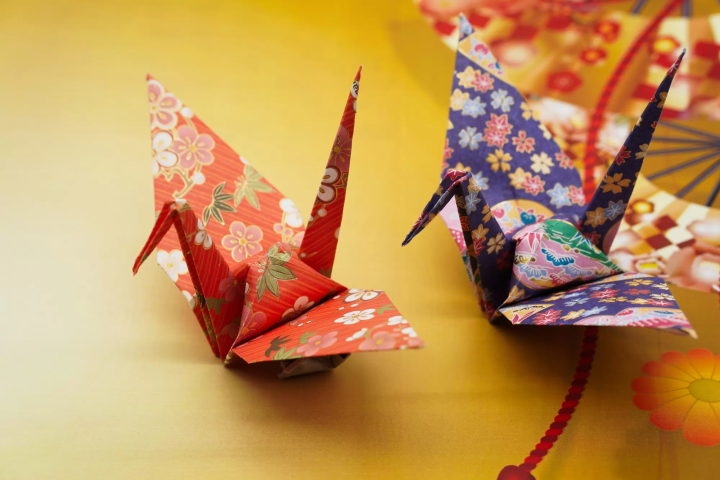
Discover the best souvenirs from Japan, from cheap, easy-to-carry items and long-lasting food products to authentic and precious craft items unique to Japan.
Uniquely Japanese Gifts and Mementos
Finding souvenirs is one of the most exciting parts of a trip to Japan. Whether you're looking for gifts for friends and family or mementos for yourself, Japan offers a wide array of unique items that make great souvenirs.
We introduce 25 Japanese souvenir items that are excellent as keepsakes from a trip to Japan. Our selection comprises artisan and handicraft items, as well as accessories and toys.
25 Must-Buy Souvenirs from Japan
Food Souvenirs and Snacks Unique to Japan
1. KitKat Chocolates with Japanese Flavors
2. Senbei Rice Crackers
3. Green Tea: Matcha Powder or Regular Tea
4. Chagashi: Confections for Tea and Coffee
5. Japanese Chocolate Snacks
Cheap Souvenirs from Japan
6. Chopsticks
7. Japanese Fans (Sensu)
8. Tenugui - Japanese Towels
9. Origami Paper
10. Ninja Goods
11. Omamori Charms
Authentic and Affordable Souvenirs from Japan
12. Yukata: Light Kimono
13. Kokeshi Dolls
14. Okiagari Koboshi Dolls
15. Ukiyo-e Woodblock Prints
16. Furoshiki - Wrapping Cloth
17. Chochin - Japanese Lanterns
18. Kanzashi Hair Accessories
19. Furin - Wind Chimes
20. Traditional Toys
High-Quality Souvenirs from Japan
21. Porcelain Ware: Arita, Imari, Kutani
22. Lacquerware with Golden Decorations
23. Inden Leather Goods
24. Edo Kiriko Glass Items
25. Bonsai Vessels
Where to Shop for Souvenirs in Tokyo
- Japan Traditional Crafts Aoyama Square
- Oriental Bazaar
Food Souvenirs and Snacks Unique to Japan
The following food items are lightweight, easy to carry, and have a relatively long shelf life, making them less likely to spoil.
Additionally, they are quite affordable, making them ideal souvenirs from Japan for friends, family, and coworkers.
1. KitKat Chocolates with Japanese Flavors
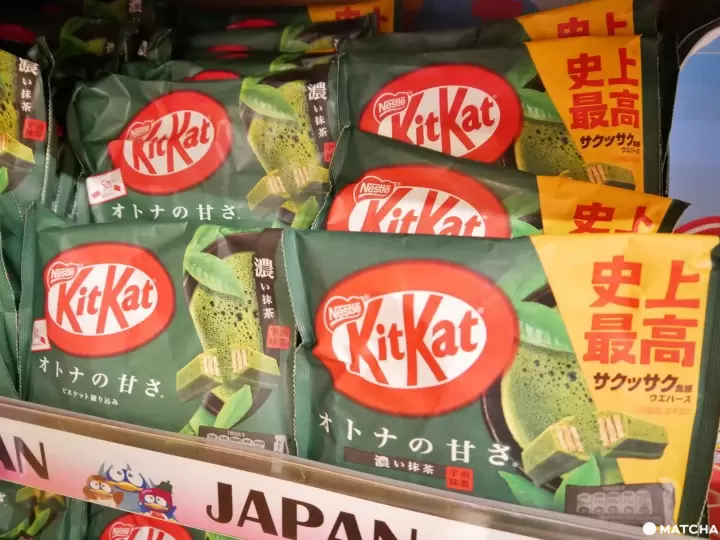
The popular KitKat Mini Matcha chocolates are just one of the many Japan-only flavors for original KitKat chocolates made in Japan. You can also find other rare flavors like Kinako (roasted soybean powder) or regional flavors like Plum Wine or Sake.
Japanese KitKat chocolates also come in season-limited flavors like Matcha Latte or Rich Matcha Tea.
You can find them at supermarkets or Don Quijote stores in Japan. Even drugstores handle some of the popular flavors.
A package of 11 Mini KitKat pieces costs around 400 yen, but depending on the flavor, you may find other type of packaging. The rare flavors are usually a bit more expensive, between 800 and 1,000 yen.
2. Senbei Rice Crackers
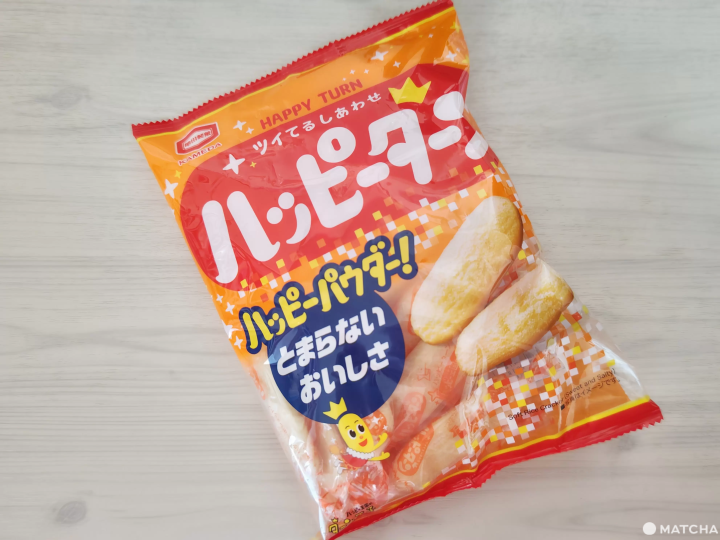
Senbei are traditional Japanese rice crackers that come in various shapes, sizes, and flavors. They are typically made from rice or glutinous rice, which is pounded, formed into shapes, and then baked, toasted, or grilled.
We recommend them as souvenirs because they are very lightweight and easy to carry over long distances. Moreover, they have a long shelf life - of several months.
You can find rice crackers at any supermarket or Don Quijote store. Popular brands include:
- Happy Turn (approx. 200 yen/package), which have an elongated shape and a pleasant saltiness,
- Bakauke (approx. 300 yen/package), which are glazed with soy sauce, or
- Kaki no Tane (approx. 300 yen/pack of 6 portions) - small baked rice crackers flavored with wasabi, yuzu citrus, and other ingredients, which are great as accompaniments to beer.
3. Green Tea: Matcha Powder or Regular Tea
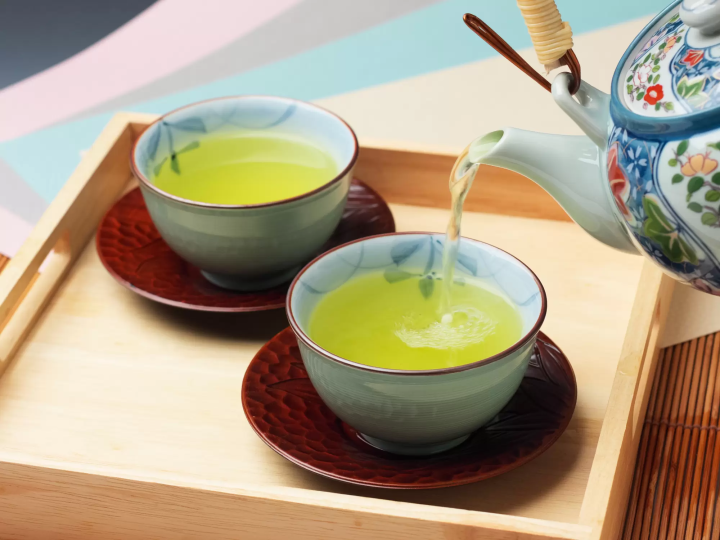
Photo by Pixta
Green tea also makes an excellent souvenir from Japan, celebrated for its refreshing taste and health benefits. We recommend leaf tea because it has a longer shelf life; it will retain its flavor for at least two to three months after opening.
You can find green tea leaf packages at any supermarket or tea specialty store. Affordable options are available for around 800 yen per package, while high-quality varieties can cost up to 2,000 yen per package.
Though often suggested as a souvenir, please be aware that matcha powder tea spoils very quickly after opening due to its sensitivity to humidity and light. Any unused portion should be immediately refrigerated and consumed as soon as possible.
Matcha powder, typically priced around 1,000 yen per can, is more expensive than regular tea and can only be purchased at dedicated tea specialty shops.
Read also
4. Chagashi: Confections for Tea and Coffee
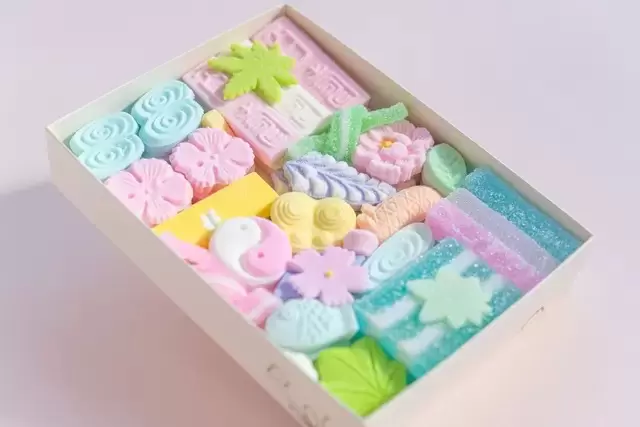
Wasanbon sugar confections. Photo by Pixta
Chagashi are simple Japanese sweets designed to complement green or black tea, though they also pair wonderfully with coffee.
For a beautiful and long-lasting souvenir, look for seasonal confections made from wasanbon sugar at traditional confectionery shops. They typically cost around 700 yen per box.
In supermarkets, you'll find different types of chagashi: packages containing 20 or 30 simpler confections, usually around 400 yen. While more affordable than wasanbon confections, these still offer a variety of traditional flavors, from monaka wafers filled with anko (red bean paste) to mochi (glutinous rice).
5. Japanese Chocolate Snacks
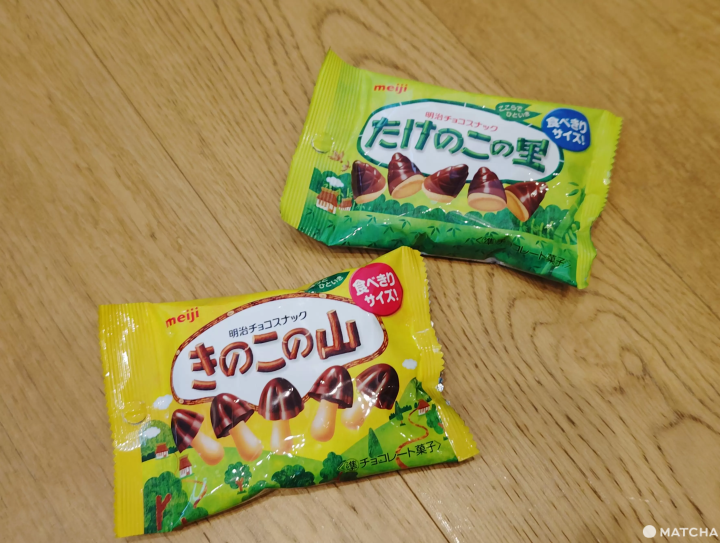
Japanese chocolate, especially from makers like Meiji, is beloved by all ages for its mellow taste. Standard options like Crunchy or cube-shaped chocolates are convenient, affordable, and delicious.
For a great souvenir for children, consider Meiji's fun, whimsical chocolates: Kinoko no Yama (mushroom-shaped) or Takenoko no Sato (bamboo shoot-shaped). These inexpensive treats, at about 300 yen for a 6-pack bag, are sure to bring joy.
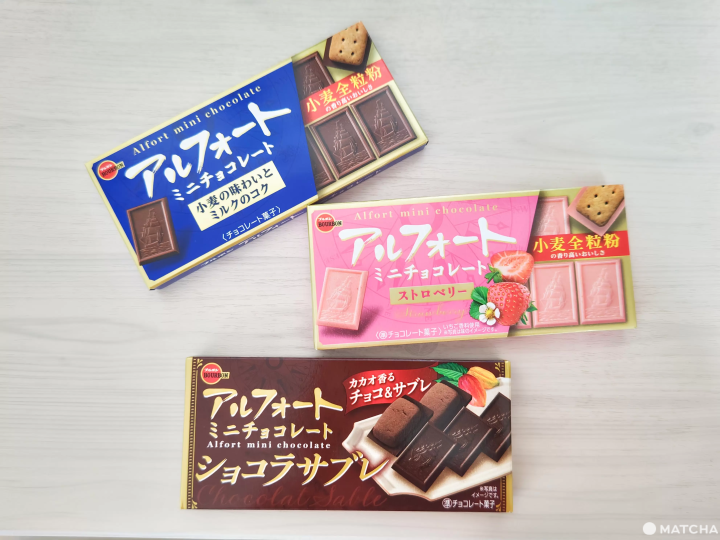
Alfort chocolate biscuits, featuring a distinctive ship design, are another popular choice, typically costing 150 yen per piece. You can find all these chocolate products at any supermarket, drugstore, or Don Quijote store across Japan.
Cheap Souvenirs from Japan
The following souvenir items are inexpensive and unique to Japan, making them excellent as simple gifts for friends.
6. Chopsticks
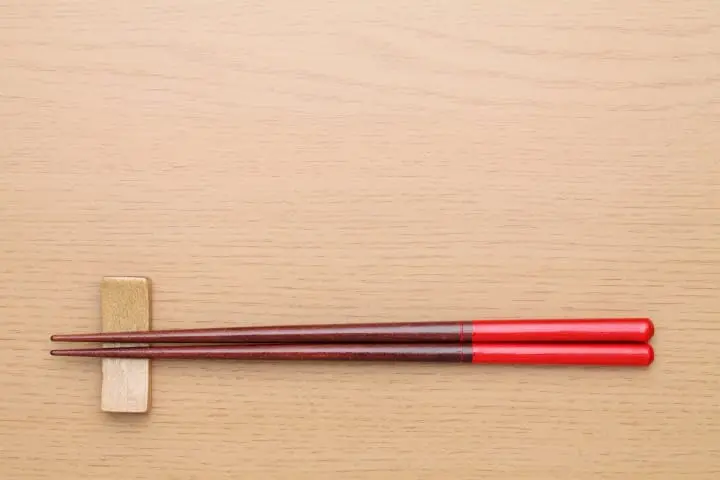
Japanese chopsticks on a chopsticks holder
Buying a nice pair of chopsticks is often one of the first ideas that come to mind when looking for souvenirs in Japan. Used daily, chopsticks are widely available at all types of stores and in many places across the country.
For those seeking high-quality lacquered chopsticks, stores like Loft offer traditional, cute, and modern designs.
Additionally, 100-yen shops such as Daiso carry a variety of colorful wooden and plastic chopsticks. Be sure to check out both options before making your choice!
7. Japanese Fans (Sensu)
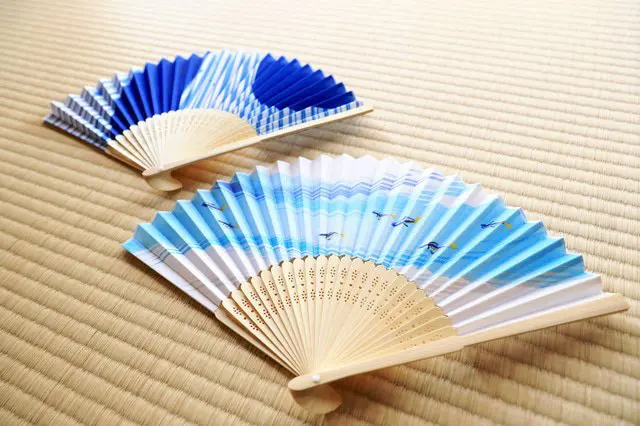
Photo by Pixta
Average price: 100 yen - 1,000 yen
A sensu fan is an affordable item that also makes a wonderful souvenir from Japan. You can find them at 100-yen shops, small specialty stores, or shops dedicated to sensu fans, such as Kyosendo.
Traditionally in Japan, the sensu fan is carried around and tucked into the obi sash of a yukata. It would be lovely to purchase a fan along with a yukata as a matching set.
8. Tenugui - Japanese Towels
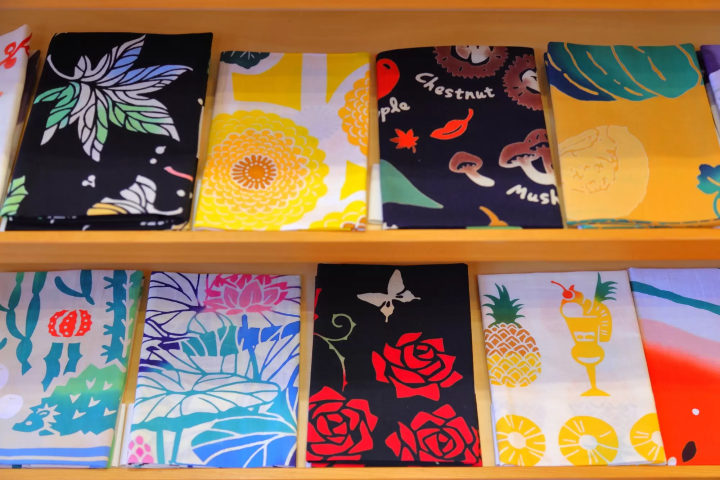
Photo by Pixta
Average price: 100 yen - 1,000 yen
A budget-friendly Japanese souvenir is the tenugui towel. Originally used to dry hands and body, these Japanese cotton towels are nowadays often framed and displayed as decorative interior accents, thanks to their beautiful designs.
Traditional tenugui towels can be found at 100-yen shops, souvenir stores, and specialty shops such as Kamawanu, which has locations in Asakusa and Shibuya in Tokyo.
9. Origami Paper
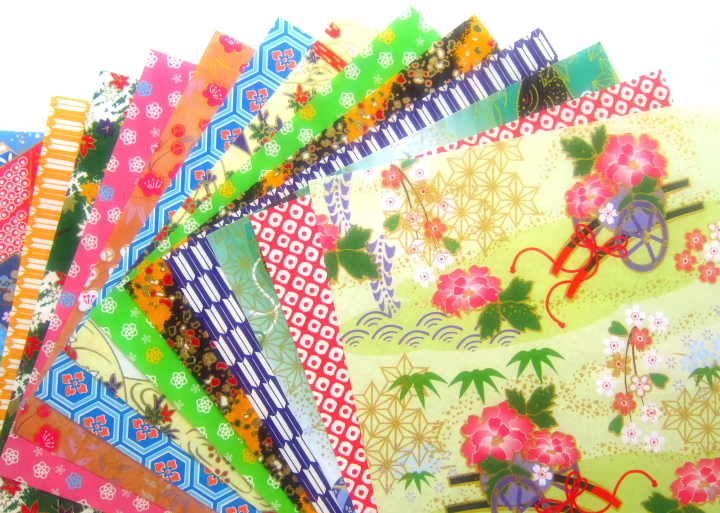
Photo by Pixta
Average price: 300 yen - 1,000 yen
Japanese origami paper is renowned for its vibrant prints and high quality. It makes a great souvenir for those seeking something authentic and enjoyable.
While origami paper can be found at most stationery shops, specialty stores like Ochanomizu Origami Kaikan offer a wide variety of designs.
They also provide classes where you can learn to make origami crafts. Anyone interested in exploring the art of origami should definitely visit this place.
10. Ninja Goods

Ninja-related items such as shuriken, fake swords, and ninja costumes can be found at shops in popular tourist areas like Nakamise-dori in Asakusa.
Additionally, shuriken and other ninja goods are available at sites known for ninja history and culture, including Nikko Edo Wonderland in Tochigi Prefecture, Iga City in Mie Prefecture, and the Ninja Village in Ureshino, Saga Prefecture.
11. Omamori Charms
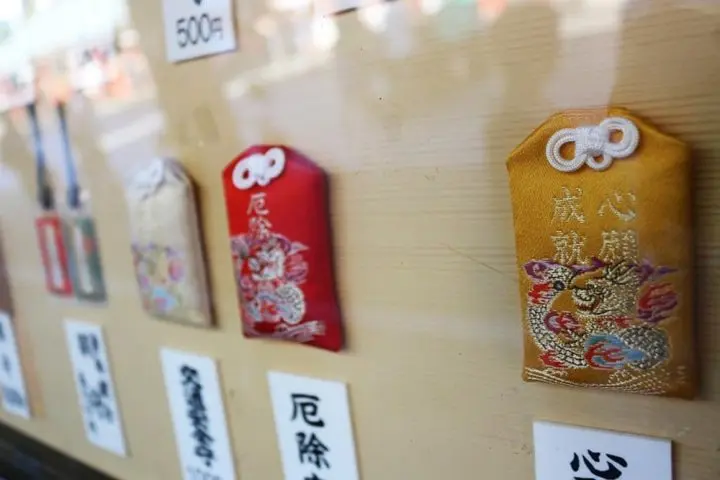
Price: 300 yen - 1,000 yen
Omamori, or good luck charms, can be found at shrines and temples throughout Japan.
These charms are used to pray for various blessings such as health, longevity, good relationships and love, safe childbirth, and more. People choose charms that best match their personal wishes and needs.
Read also
Authentic and Affordable Souvenirs from Japan
The following items are affordable and considered authentic souvenirs from Japan. Most are lightweight, making them easy to carry over long distances.
These items make excellent gifts for family members who have always wanted something from Japan or for colleagues.
12. Yukata (Light Kimono)

Photo by Pixta
Average price: 5,000 yen - 10,000 yen
Yukata, lightweight summer kimonos, are a popular souvenir from Japan that many visitors like to purchase. They can be found in specialty kimono shops, and during the summer, you may even find them at major supermarkets such as Aeon or Ito Yokado.
Yukatas with traditional Japanese designs sold at UNIQLO, which cost around 3,000 yen, are also very popular.
Read also
13. Kokeshi Dolls
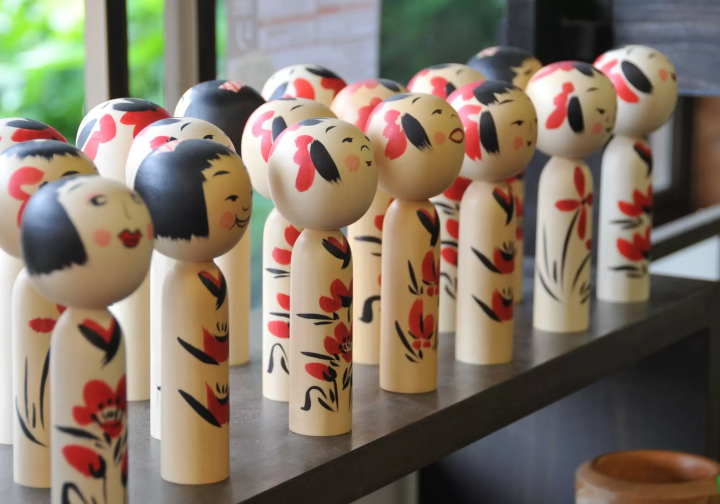
Photo by Pixta
Average price: 1,000 yen - 5,000 yen or more
A kokeshi is a wooden doll carved from wood. Due to its natural material, it pairs well with other interior decor items in non-Japanese households. You can find kokeshi dolls in toy stores, small item shops, or souvenir shops.
Additionally, be sure to check out this unique umbrella shaped like a kokeshi doll—it's definitely worth a look!
Read also
14. Okiagari Koboshi Dolls
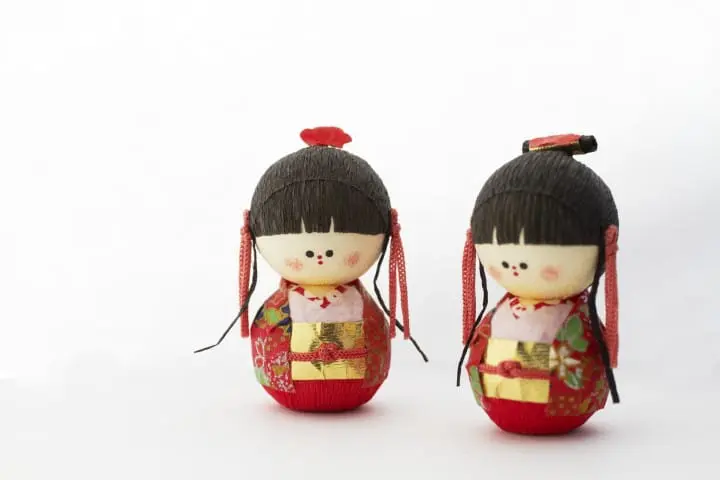
Photo by Pixta
Average price: 500 yen - 2,000 yen
Okiagari Koboshi are traditional Japanese dolls with charming painted features. The name "okiagari" means "standing up," reflecting their ability to upright themselves even after being pushed down, symbolizing resilience.
Made of papier-mâché, these small and lightweight dolls are easy to carry and make thoughtful souvenirs. Like the kokeshi dolls mentioned earlier, they are commonly sold at small souvenir shops.
15. Ukiyo-e Woodblock Prints
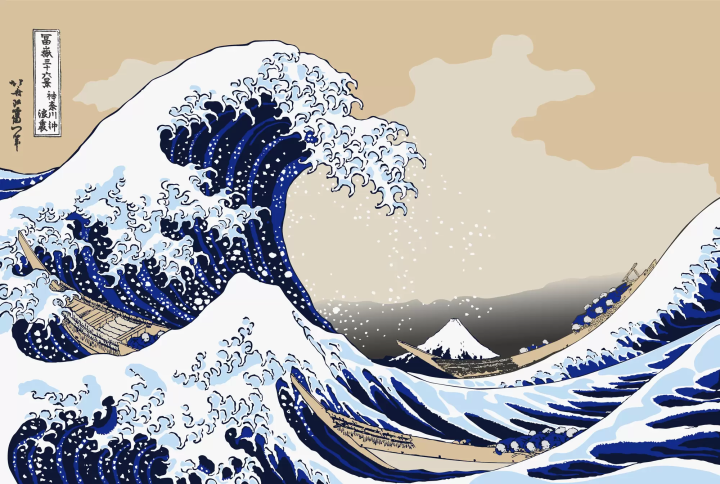
"The Great Wave of Kanagawa," woodblock print art by Hokusai. Photo by Pixta
Ukiyo-e is a traditional Japanese art form that gained popularity during the Edo period (1603-1868). Created using woodblock printing, it is considered one of the world's oldest forms of color reproduction.
Ukiyo-e images often depict famous Kabuki actors, Mount Fuji, bustling city scenes from the Edo period, and more.
They are characterized by their distinctive style and exquisite use of color. Today, ukiyo-e designs are commonly found on various small items and stationery.
16. Furoshiki - Wrapping Cloth
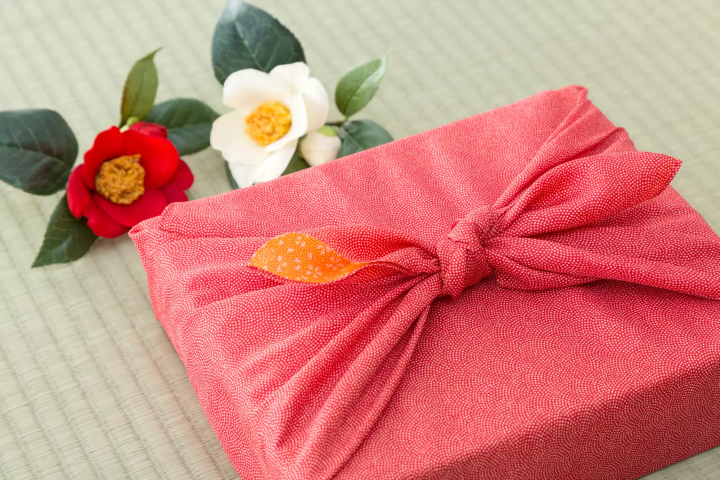
Average price: 1,000 yen - 5,000 yen
A furoshiki is a large cloth used to wrap and carry belongings, functioning much like a bag. You can use it to hold and transport items such as boxes, kimonos, wine bottles, and more.
Furoshiki come in a variety of designs, ranging from traditional Japanese patterns to modern, stylish options like polka dots or cute characters and animals.
17. Chochin: Japanese Lanterns
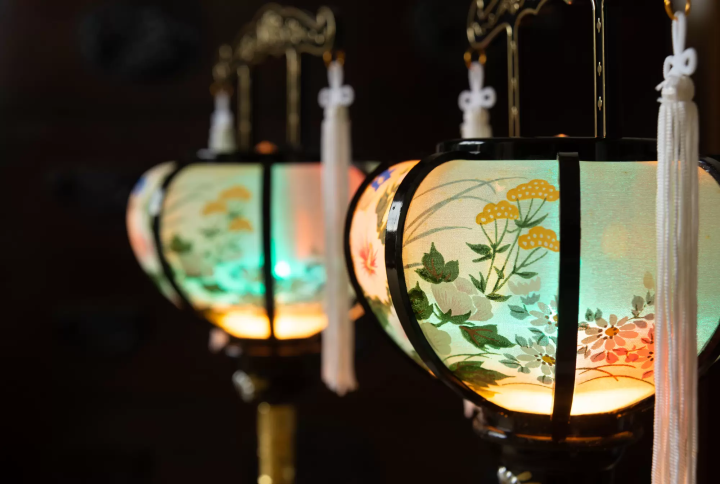
Photo by Pixta
Average price: 1,000 yen - 3,000 yen
The chochin is a paper lantern commonly seen in Japan. You often see them emitting a red glow at the entrances of izakaya bars or yakitori (grilled chicken) restaurants.
Typically, Japanese people do not hang them inside their homes, but outside of Japan, some people use chochin lanterns as attractive room decor. You can find chochin lanterns at home accessories stores such as Tokyu Hands.
18. Kanzashi Hair Accessories
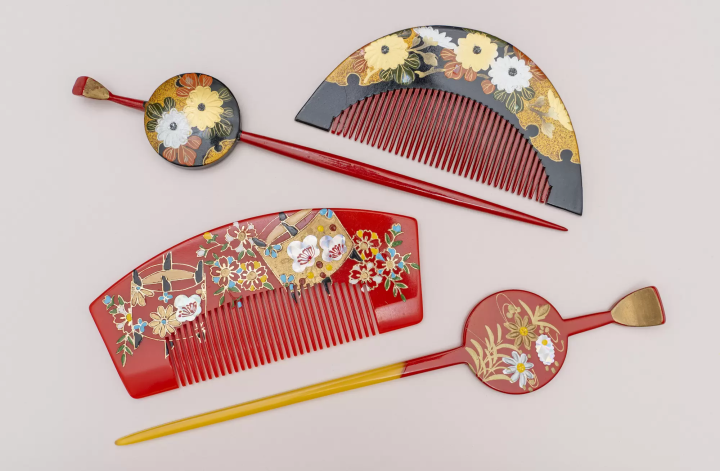
Photo by Pixta
Average price: 2,000 yen - 10,000 yen
Kanzashi is a traditional Japanese hair accessory. Even modern hairstyles often incorporate kanzashi, and they remain popular today. There are specialized shops like Kanzashiya Wargo, a kimono rental shop that sells casual-style kanzashi for around 2,000 yen.
If you're looking for more traditional kanzashi, similar to those used by geisha, you can find them at kimono shops. Authentic kanzashi can range from 5,000 to 10,000 yen depending on the style and materials.
19. Furin - Wind Chimes
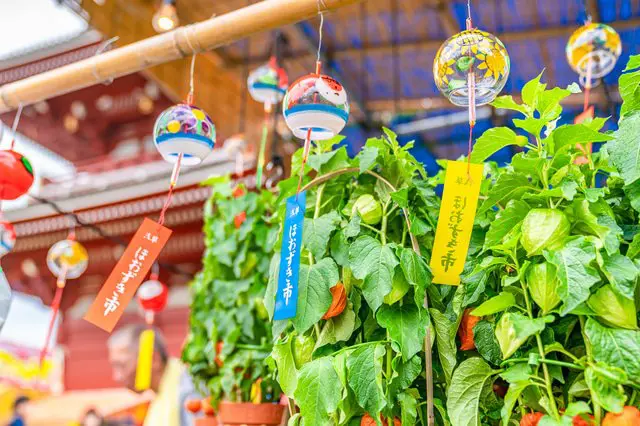
Average price: 1,000 yen - 3,000 yen
Furin is a wind chime often hung under roofs to enjoy the gentle melody of glass bells as they sway in the breeze.
On hot summer days, the soothing sound of furin evokes a sense of cool breezes. You can find furin wind chimes at shops that sell interior goods or at stores like Loft and Tokyu Hands.
20. Traditional Toys

Average price: 1,000 yen - 3,000 yen
Regional toys that have been enjoyed for generations make wonderful gifts for children and can also serve as charming interior decorations.
An example is the Akabeko, a red wooden cow toy from the Aizu region, which is believed to bring good luck.
High-Quality Souvenirs from Japan
The following items are some of Japan's finest examples of traditional craftsmanship. These artisan pieces require a high level of skill and considerable time to create, making them highly valuable.
These Japanese craft items make excellent gifts for superiors or those you wish to show gratitude to, as well as for special occasions and anniversaries.
21. Porcelain Ware: Arita, Imari, Kutani
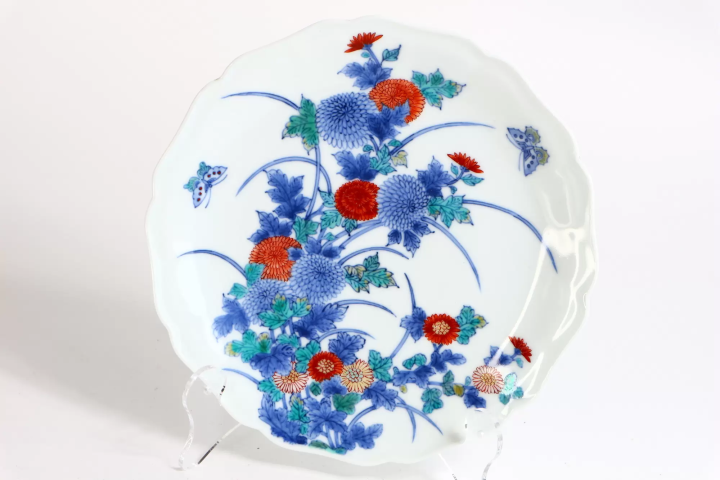
Photo by Pixta
Japanese porcelain wares originally borrowed crafting techniques from Korea and Jingdezhen, China, before eventually developing into a unique Japanese craft. Japan’s meal culture—often consisting of rice, soup, and three side dishes—and traditional tea ceremonies helped shape these beautiful wares into their present form.
There are several types of ceramic ware, and the ones below are popular as souvenirs:
- Arita ware and Imari ware: These ceramics are known for their translucent white porcelain, elegant patterns painted with indigo blue pigment called gosu, and vibrant red colors. The porcelain made in Arita, Saga Prefecture, is called Aritayaki, while that from Imari, also in Saga Prefecture, is known as Imariyaki.
- Kutani ware: Characterized by its bold, majestic beauty, Kutani ware is porcelain crafted in Kutani, Ishikawa Prefecture. It includes various items such as flower vases, tableware, tea utensils, ornaments, and sake cups.
These ceramics can be purchased in the regions where they are made or at gift shops like the Oriental Bazaar in Tokyo. The average price usually exceeds 5,000 yen for a porcelain teacup, and can reach 20,000 yen or more for a set.
22. Lacquerware with Golden Decorations
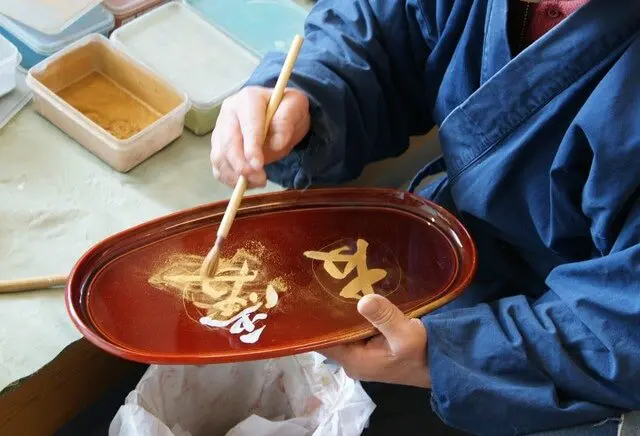
Photo by Pixta
Average price: 5,000 yen - 10,000 yen or more
Gold lacquerware is a traditional craft that involves sprinkling gold and silver powder onto dark lacquer to create intricate designs.
Many souvenir shops offer jewelry boxes, accessories, and decorative items featuring beautiful gold lacquer patterns. While some pieces can be quite expensive and luxurious, they make special and elegant gifts for someone dear—or even a treat for yourself.
23. Inden Leather Goods
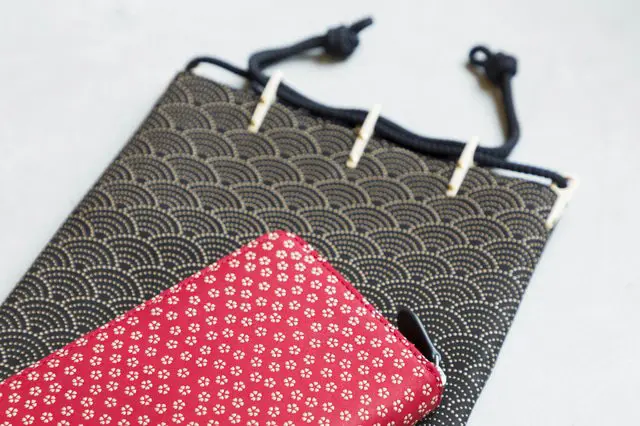
Photo by Pixta
Average price: 2,000 yen - 10,000 yen
Inden is a traditional Japanese craft that features patterns printed with lacquer on deer leather. At inden specialty shops, you can find items such as coin purses, business card holders, glasses cases, and bags.
These items are also sometimes available at select shops like Tokyu Plaza Ginza. Small items such as coin purses typically cost around 2,000 yen.
24. Edo Kiriko Glass Items
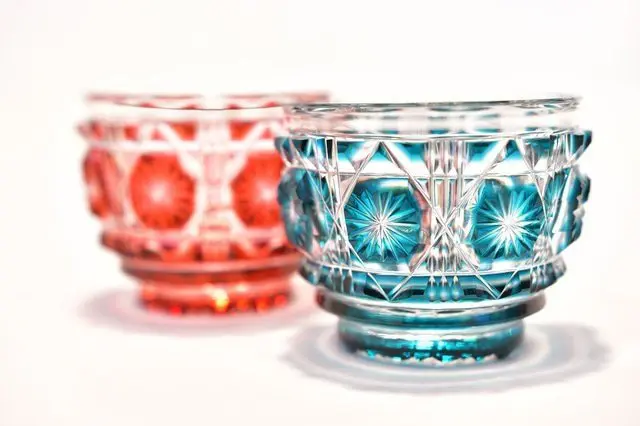
Photo by Pixta
Average price: 5,000 yen - 10,000 yen
Edo Kiriko is a traditional Japanese craft from Tokyo, where glass is cut into intricate and beautiful designs. Stylish and elegant glassware such as sake cups, whiskey glasses, champagne flutes, and vases are available.
Small Edo Kiriko glass cups typically start at around 5,000 yen. They make a wonderful souvenir for someone who enjoys drinking glasses or appreciates fine craftsmanship.
25. Bonsai Containers
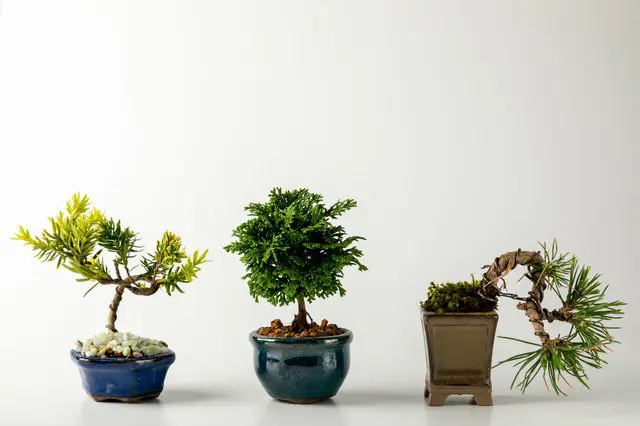
Photo by Pixta
Average price: 1,500 yen - 10,000 yen or more
In Japan, you can find affordable, good-quality vases and containers for bonsai. For example, small vessels about the size of your palm can be purchased for around 1,500 yen.
If you want to decorate your home with bonsai, it might be nice to find elegant ceramic containers. These bonsai vessels are available at gardening shops, and though the variety may be limited, you can also find them at 100-yen shops.
Where to Shop for Souvenirs in Tokyo
Now that you’re familiar with various types of Japanese omiyage souvenirs, you may be wondering where to shop for these gifts. Below are some recommended spots in Tokyo.
Japan Traditional Crafts Aoyama Square
Located just 3 minutes from Aoyama-itchome subway station, this gallery and shop offers a wide range of traditional Japanese crafts, including textiles, dyed products, ceramics, lacquerware, items made from wood and bamboo, traditional Japanese paper, stone crafts, dolls, and kokeshi dolls.
Visitors can enjoy exploring the various crafts by examining and feeling them with their own hands.
Address: Tokyo, Minato, Akasaka 8-1-22 MAP
Access: 3-min walk from Aoyama-itchome subway station
Business Hours: 11:00 - 19:00 *Business hours will differ on the first and last days of special exhibitions.
Open 365 days a year (excluding the year-end holiday period)
*No parking available.
Website: kougeihin.jp (Japanese)
Oriental Bazaar
The Oriental Bazaar was established in Nihonbashi in 1916 as a store selling second-hand goods. In 1951, it moved to Omotesando and reopened as a souvenir shop catering to the people of Washington Heights, a housing complex for the U.S. military nearby. This marked the beginning of its history as the Oriental Bazaar.
The bazaar offers many items popular with international visitors, such as Japanese ceramics, kimono textiles, and crafts made with washi paper.
Address: Tokyo, Shibuya, Jingumae 5-9-8 MAP
Business Hours: 11:00-18:30
Regular holiday: Closed on Wednesdays and Thursdays
Access: 8-minute walk from Harajuku Station, Omotesando Gate or 5-minute walk from Omote-sando Station, Exit A1.
Website: orientalbazaar.co.jp/en/
Make Your Friends and Yourself Happy with Japan-Only Gifts
Japan is a country that beautifully preserves its traditions, and one proof of this is the wide array of traditional crafts and items available in Kyoto, Tokyo, and many other places.
Enhance your trip by bringing home these stunning mementos for yourself and your loved ones.
FAQ
What to buy in Japan as a gift?
When choosing gifts in Japan, consider traditional souvenirs like yukata, chopsticks, and ceramics, regional treats such as matcha snacks and specialty teas, crafts like pottery and origami, stylish stationery, Japanese green tea options, fashion accessories, kitchenware, and beauty products. These selections showcase Japan's rich culture and craftsmanship, providing a diverse array of options for varied tastes and interests when seeking the perfect gift.
Where can visitor buy their souvenirs in Japan?
In Japan, visitors have a multitude of options to purchase souvenirs from a variety of shops. If you're looking for cheap edible souvenirs or items that can be bought in bulk, the Don Quijote stores may be the best choice. The Bic Camera chain also offers a wide array of products from anime-related items to stationery, cosmetics, electrical devices, and more.
If you're looking for high-quality items, department stores such as Takashimaya and Mitsukoshi offer sections dedicated to traditional and modern Japanese gifts, while tourist areas, historical sites, and temples feature souvenir shops with cultural trinkets. Specialty stores focusing on pottery, knives, tea, and crafts provide unique items, and local markets like Nishiki Market and Kuromon Market offer regional snacks and handmade goods.
International airports and vending machines also serve as convenient spots to buy last-minute gifts, and bustling shopping streets like Takeshita Street in Harajuku showcase a mix of traditional and trendy souvenirs, ensuring visitors can find the perfect tokens of their Japan trip.
What is the best thing you can buy from Japan?
In Japan, some of the best items to consider purchasing as souvenirs include Japanese green tea renowned for its flavor and health benefits, traditional pottery and ceramics like Arita and Kutani ware, top-quality beauty and skincare products from brands such as Shiseido and SK-II, sakura-themed items embodying the beauty of cherry blossoms, premium Wagyu beef and unique food products, traditional kimonos or yukatas representing Japanese culture, creatively designed stationery like pens and washi tapes, and innovative electronics and gadgets showcasing Japan's cutting-edge technology. The diverse array of options caters to a wide range of interests and preferences, providing visitors with a rich tapestry of authentic and distinctive products to bring a piece of Japan back home with them.
What are Japanese souvenirs called?
Japanese souvenirs are often referred to as "omiyage" in Japan. The term "omiyage" translates to "gift" or "souvenir" and is commonly used to describe items that travelers bring back for friends, family, or colleagues after visiting a different place. Omiyage can range from traditional items like regional snacks, crafts, or pottery to modern gifts such as stationery, beauty products, and small trinkets that represent the culture and essence of the destination visited. These souvenirs are typically intended as thoughtful gestures or tokens of appreciation for others.
What is the most common gift in Japan?
In Japan, one of the most common and popular omiyage (souvenir) items is food, particularly regional snacks and treats. These food items are often beautifully packaged and represent the local flavors and specialties of the area visited. Japanese people frequently exchange these edible gifts as a way to share a piece of their travel experiences with friends, family, and coworkers. Additionally, food souvenirs are considered a thoughtful gesture and are widely appreciated for their cultural significance and the joy they bring through sharing different tastes and culinary traditions.
However, if what you're looking for is a memento or a keepsake that should last, traditional souvenir items such as keychains, fans, and trinkets are popular choices. High-quality beauty products and skincare items from renowned Japanese brands, along with stationery items like pens and washi tapes, are well-liked gifts. Specialty teas, sake, and home décor reflecting Japanese craftsmanship are also commonly exchanged tokens.
Read also















































![[During Your Kumano Trip] Nachisan Tourist Center](https://resources.matcha-jp.com/resize/720x2000/2025/11/05-249053.webp)
![[Kagoshima] Enjoy Minamisatsuma City to the Fullest! A Guide to the Scenic Beauty and Culture of Five Areas](https://resources.matcha-jp.com/resize/720x2000/2026/02/15-258755.webp)

![[Yufuin]Yufuin in 100 Minutes: Quick Access Guide](https://resources.matcha-jp.com/resize/720x2000/2026/02/15-258738.webp)
![[Shinjuku Nishiguchi HALC] About the d Point Campaign](https://resources.matcha-jp.com/resize/720x2000/2026/02/14-258714.webp)